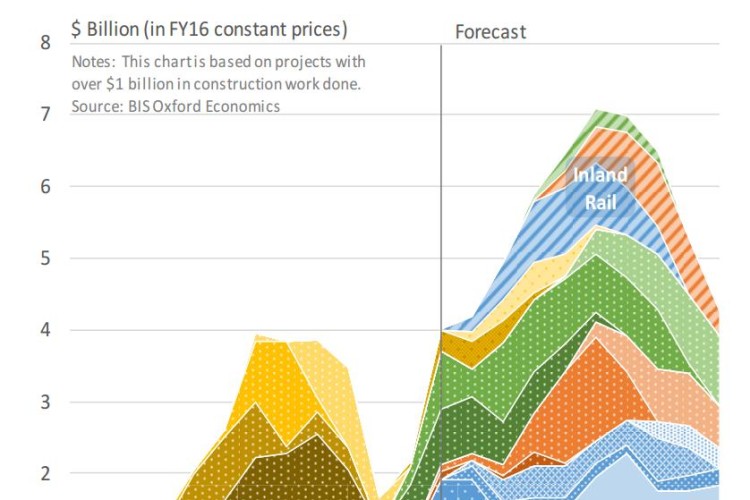The fast-developing skilled labour crisis in the rail sector was outlined by BIS Oxford Economics in a report commissioned by the Australasian Railways Association. It warns that there may be workforce gaps of up to 70,000 people at the peak of construction.
CEO Danny Broad said: “The report is a call to action to government and industry. Immediate corrective action to fill skills gaps with fit-for-purpose training is needed to avoid these blow-outs. Investment of over $100 billion in rail projects by Australian governments over the next ten years, will be undermined by shortages of skilled labour that dramatically impact the construction of new rail systems, and our capacity to operate them.”
He said that the next 10 years will herald a renaissance of rail in Australia, with urban passenger projects such as the Melbourne and Sydney metros, Brisbane’s Cross River Rail, Perth’s Metronet and Inland Rail, which will provide direct freight link from Brisbane to Melbourne.

“Unless we address shortages due to market failure, attrition, and unsuitable training arrangements, projects will blow out in terms of delivery and cost,” said Broad. “Modelling shows that in 2023, the peak of the construction phase, we may have workforce gaps of up to 70,000 people.”
The report recommends the establishment of a high-level taskforce of government, industry, and education providers with three-pronged focus:
- facilitate the development and maintenance of an Australasian rail industry pipeline of rail projects to map skilled labour required across construction, manufacturing, operations and maintenance;
- develop a national rail industry skills development strategy to drive reform in education and training systems and practices that increase the availability of required skills, their productivity, transferability, and mobility while retaining a commitment to quality and safety;
- boost awareness and attraction of rail careers.
The Australasian Railway Association engaged BIS Oxford Economics to undertake a workforce capability analysis for the rail industry based on planned and forecast rail infrastructure development in Australia and New Zealand over the next 10 years, with implications for a range of rail industry skills across construction, manufacturing, operations and maintenance.
Got a story? Email news@theconstructionindex.co.uk



